Distinguished Asian Americans for AAPI Heritage Month
During May, in honor of Asian Pacific American Heritage Month, we are recognizing and uplifting Asian American and Pacific Islander (AAPI) people whose leadership, innovation and creativity have made and continue to make vast contributions to our history and our country today.
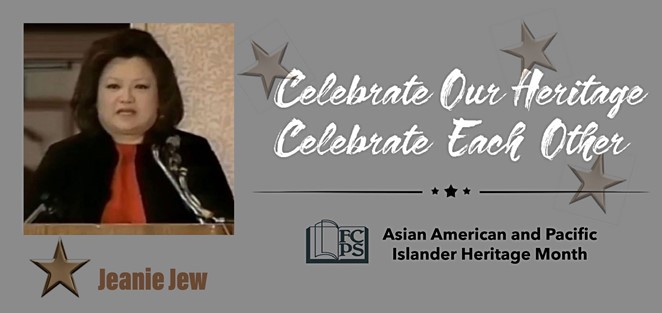
Jeanie Jew: Jeanie Jew is a board member of the OCA-Asian Pacific American Advocates. The organization has rebranded from the Organization of Chinese Americans. As a former staffer on Capitol Hill and board member of the OCA-Asian Pacific American Advocates, she brought the idea of designating a month out of the year to recognize Asian Pacific Americans to New York Representative Frank Horton.
Having witnessed the U.S. Bicentennial celebrations of 1976, Jew was frustrated that Asian Pacific Americans were not being included as recognized communities in celebration of the bicentennial. During the period, Black History Month, which was decreed to become a national observance in 1976 by President Gerald Ford, was already being celebrated. Hispanic Heritage Week, recognized as a national celebration by President Lyndon B. Johnson in 1968, was also in place.
According to the APAHeritage website, she also wanted to commemorate her great grandfather M.Y. Lee, who contributed to building the Transcontinental Railroad. Originating from China, M.Y. Lee reportedly came to the U.S. in the 1800s and was among those who suffered heavily despite playing a key role in American history. A U.S. federal law that openly targeted Chinese immigrants in the late 19th century made life difficult for many like Lee.
https://nextshark.com/asian-heritage-month-jeanie-jew/

Grace Lee Boggs: After getting her Ph.D. in 1940, Chinese American activist Grace Lee Boggs was unable to get a position in academics because of her race and gender. The author and philosopher later moved to Chicago to work a low paying job at a philosophy library. It was in Chicago where Boggs encountered the African American community for the first time, and as a result from her work in tenant’s rights activism, she eventually focused on the struggles of the African-American community, making it her life’s work.
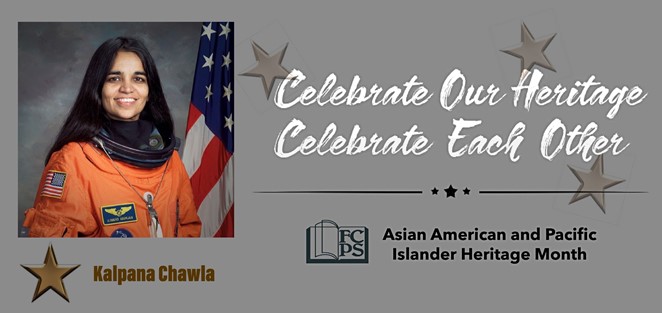
Kalpana Chawla: Kalpana Chawla was the first Indian-born woman in space. After immigrating to the U.S. to attend graduate school, Kalpana Chawla joined the crew of the space shuttle Columbia, flight STS-87 in 1996, to become the first Indian-born woman to fly in space.
In 2003, Chawla boarded Columbia again, on the STS-107 mission. During its 15-day mission, the crew completed nearly 80 experiments studying Earth and space science. However, during its launch, a piece of insulation broke off the shuttle, causing it to disintegrate upon reentry to the Earth’s atmosphere. Chawla and the six other crew members were killed.
Chawla’s contributions to both science and the U.S. space shuttle program continue to resonate today. For her work and dedication to her field, Chawla posthumously received the Congressional Space Medal of Honor, the NASA Space Flight Medal, and the NASA Distinguished Service Medal. Part of her legacy is encouraging girls everywhere to take part in STEM.

Yuri Kochiyama: In her twenties, Japanese American civil rights activist Yuri Kochiyama was forcibly relocated to incarceration camps along with her family and over 120,000 Japanese Americans. She met her husband in relocation, and they moved to New York City after World War II, where she would hold weekly activist open houses at their apartment. A friendship with Malcolm X influenced her work. She was famously seen cupping Malcolm X’s head after his assassination in 1965. As a staunch opponent of the Vietnam War, Kochiyama also supported a wide variety of social justice movements such as anti-apartheid in South Africa and Puerto Rican independence.
Formerly interned during World War II, Kochiyama successfully helped fight U.S. Congress to pass the Civil Liberties Act of 1988, which granted $20,000 dollars in reparations to each of the estimated 60,000 surviving Japanese detainees. She dedicated her life to advocacy for civil rights for marginalized communities.
Later in life, she actively opposed racial profiling against Muslims, Middle Easterners, and South Asians in the U.S. She died in 2014 when she was 93 years old.

Bruce Lee: a Chinese American martial artist, action film actor, filmmaker, and philosopher. He is considered as the most influential martial artist of all time and a pop culture icon of the 20th century. Born in San Francisco, Lee grew up in Hong Kong, where he was a child actor in many films and trained in the art of wing chun gung fu. At the age of 18, he returned to the U.S. and studied philosophy at the University of Washington.
Lee is the founder of Jeet Kune Do that was drawn from different combat disciplines and steeped in a philosophical foundation – “Using no way as way; having no limitation as limitation.” He expanded kung fu to non–Chinese students and was the first Chinese to break into Hollywood. His films elevated the martial arts film to a new level of popularity, sparking the surge of interest in Chinese martial arts in the West. He changed the way Asians were presented in American films, and bridged the gap between East and West.
Through his art expression, Lee showcased a path of personal “liberation” encompassing the physical, mental, aesthetic dimensions of human life. His legacy, art and wisdoms continuously inspire people all around the world.
“Empty your mind, be formless, shapeless like water. You put water into a cup, it becomes the cup. You put water into a bottle, it becomes the bottle. You put it into a teapot, it becomes the teapot. Now water can flow or it can crash. Be water, my friend.”
“Always be yourself; express yourself; have faith in yourself.”
https://en.m.wikipedia.org/wiki/Bruce_Lee

Erika Lee: Erika Lee is one of the nation’s leading immigration and Asian American historians. She is the author of the award-winning books At America’s Gates: Chinese Immigration during the Exclusion Era, 1882-1943, Angel Island: Immigrant Gateway to America (co-authored with Judy Yung), and The Making of Asian America: A History, recently published to wide acclaim.
https://cla.umn.edu/about/directory/profile/erikalee

Patsy Mink: Patsy Matsu Takemoto Mink is a Hawaiian born, third-generation Japanese American. She made waves when she was elected to the U.S. House of Representatives in 1964, representing Hawaii’s 2nd Congressional District. Although she was born in the U.S., her family was from Japan. In the workforce, the odds were stacked against her. After being denied the ability to take the bar due to being married and having a child (considered illegible then), then challenged the sexist statute and won. She passed the bar and opened her own office in Chicago in 1953 after completing law school. She most notably ran for a seat in the House of Representatives and won becoming the first Japanese American (and WOC) to serve in the House in 1956.
Mink was one of only eight women in Congress at that time. Once in office, she championed the fight against the inequity that she had faced. Most people in the U.S. have heard of Title IX, the landmark legislation that prohibits gender discrimination in education, but many do not realize that Mink was one of two principal authors and sponsors of the bill, and even penned its first draft. To this day, Title IX’s influence lives on, a vital tool in the fight against discrimination and sexual harassment in classrooms and in school sports. Mink served in the House until her death in 2002, over 12 terms, and also helped to pass the Early Childhood Education Act and the Women’s Educational Equity Act.
https://www.nps.gov/people/patsy-mink.htm

Daniel Ken Inouye: Daniel Ken Inouye was a United States Senator from Hawaii from 1963 until his death in 2012. A member of the Democratic Party, he was President pro tempore of the United States Senate (third in the presidential line of succession) from 2010 until his death. Until the inauguration of Kamala Harris as vice president in 2021, Inouye was the highest-ranking Asian-American politician in U.S. history. Inouye also chaired various Senate Committees, including those on Intelligence, Commerce and Appropriations.
https://history.house.gov/People/Detail/15647
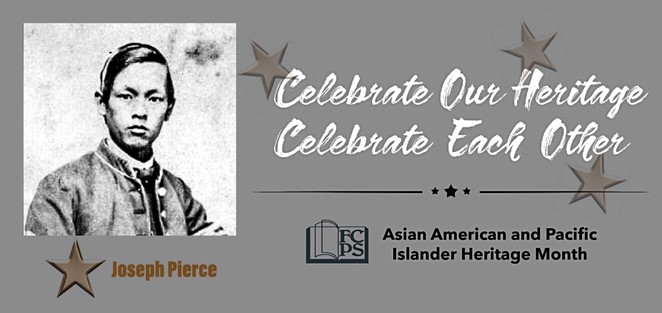
Joseph Pierce: Joseph Pierce was a Chinese immigrant. He served during the Civil War and attained the rank of corporal and is thought to be the highest rank of any Chinese American in the Union Army.
Joseph was brought to the United States by his adoptive father, ship captain Amos Peck of Connecticut. He enlisted in the early 1860s and eventually became a member of the Second Brigade of the Third Division, Second Army Corps of the Army of the Potomac. Joseph is believed to have been the only Chinese soldier in the Army of the Potomac, which was the main Union Army in the Civil War’s eastern theater. Joseph fought in campaigns in Antietam and Gettysburg and remained with the Army through the end of the war.
Joseph settled in Meriden, Connecticut after the war and worked in the area until he retired in 1914. He married an American woman named Martha Morgan and had four children. Joseph passed away on Jan. 3, 1916 at the age of 73. His picture hangs in the Gettysburg Museum.

Wong Chin Foo: Wong Chin Foo was an activist, journalist, and lecturer, who became an outspoken critic of anti-Chinese sentiment and stereotypes in America. Born in Shandong, China, Wong was among the first Chinese immigrants to be naturalized in 1873. He was dedicated to fighting for the equal rights of Chinese Americans. Wong founded New York’s first Chinese newspaper in 1883. Wong founded the Chinese Equal Rights League in 1892, which united the Chinese Americans to fight against the Chinese Exclusion Act and the 1892 Geary Act. On January 26, 1893 Wong testified in front of the Congress to defend Chinese Americans against the Geary Act. Wong was also the first to proclaim the identity, “Chinese American,” which he used as the title of his newspaper. He is regarded as the Chinese “Dr. Martin Luther King” for Chinese Americans.

I.M. Pei: Chinese-American architect I.M. Pei is a man who needs no introduction. Even if you do not know his face, you would have seen his work, such as the East Building of the National Gallery of Art, in Washington, D.C., and the extension of the Louvre in Paris, France. These are just a fraction of Pei’s prolific architectural footprints, as his master pieces are dazzling around the world. Pei was born in Canton China in 1917 and came to the United States in 1935 to study first at the U.Pen and then at MIT (B. Arch. 1940) and then Harvard Graduate School of Design (M. Arch. 1946). He maintained such design philosophy that buildings should not just to solve functional and technical problems but also to produce “an architecture of ideas.” His architecture can be characterized by its faith in modernism, humanized by its lyricism and beauty. What he valued most in architecture was that “it will stand the test of time.”
https://www.nytimes.com/2019/05/16/obituaries/im-pei-dead.html

Evelyn Yoshimura: Evelyn Yoshimura is a Japanese American activist whose parents survived Japanese internment camps. As a young activist, she saw the commonalities among marginalized communities and learned from the political movements in the African American and Latino American communities in California. At California State University, Long Beach, she advocated for and helped develop an Asian American Studies program. She was one of the founding editors of the Gidra; the first Asian American Activist Magazine.
http://www.discovernikkei.org/en/interviews/profiles/145/
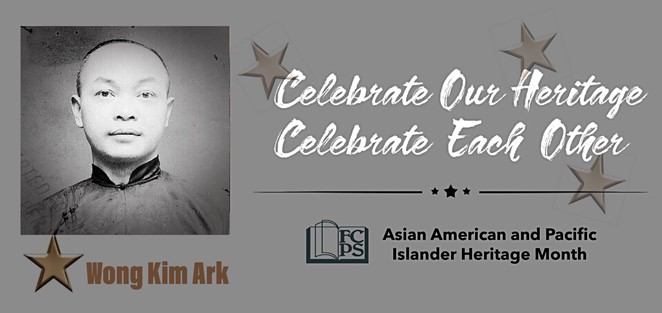
Wong Kim Ark: Wong Kim Ark is important to the US history not because of his career, but due to his lawsuit against the US, which affirmed his US citizenship. His parents were both Chinese immigrants. Due to the Chinese Exclusion Act, they couldn’t get US citizenships. After his parents went back to China, Wong visited them often. On one return trip to the US, he was denied re-entry due to his parents’ non-US citizenships. Since he was born in CA, Wong filed a federal lawsuit and won, which became a case law for birthright citizenship.
https://en.m.wikipedia.org/wiki/United_States_v._Wong_Kim_Ark
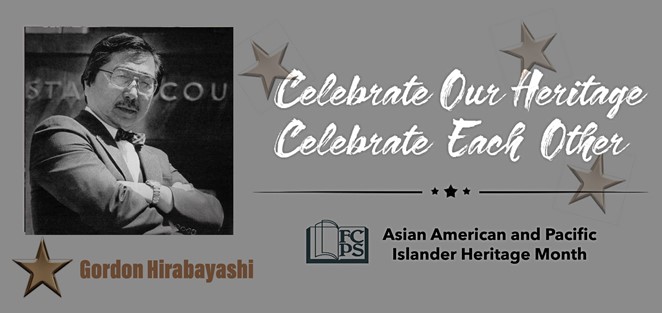
Gordon Hirabayashi: Gordon Kiyoshi Hirabayashi was an American sociologist, best known for his principled resistance to the Japanese American internment during World War II, and the court case which bears his name, Hirabayashi v. United States.
https://encyclopedia.densho.org/Gordon_Hirabayashi

Samuel Ting: Samuel Ting, born January 27, 1936, is an Chinese-American physicist who, with Burton Richter, received the Nobel Prize in 1976 for discovering the subatomic J/ψ particle. More recently he has been the principal investigator in research conducted with the Alpha Magnetic Spectrometer, a device installed on the International Space Station in 2011.
https://physics.mit.edu/faculty/samuel-ting/

Chien-Shiung Wu: Chien-Shiung Wu is a pioneer and pivotal figure in the history of physics. An immigrant to the United States from China, she did important work for the Manhattan Project and in experimental physics. Her crucial contribution to particle physics was, however, ignored by the Nobel Prize committee when it awarded the 1957 Nobel Prize in Physics.
https://www.nps.gov/people/dr-chien-shiung-wu-the-first-lady-of-physics.htm

Maya Lin: Born in 1959, Maya Lin is regarded as an American designer and artist. In 1981, while an undergraduate at Yale University, she achieved national recognition when she won a national design competition for the Vietnam Veterans Memorial in Washington, D.C.
Lin has designed numerous memorials, public and private buildings, landscapes, and sculptures. Although she is best known for historical memorials, she is also known for environmentally themed works, which often address environmental decline. According to Lin, she draws inspiration from the architecture of nature but believes that nothing she creates can match its beauty.
https://www.britannica.com/biography/Maya-Lin

Dr. Me-Iung Ting: Dr. Me-Iung Ting worked tirelessly to improve medical care for women, children, and refugees, even when it put her at great personal risk. Ting’s experiences as a foreign student studying in the US illustrate the influence of American medical education around the world.
https://www.nps.gov/people/dr-me-iung-ting.htm

Steven Chu: Born in Saint Louis, Missouri in 1948. Steven Chu is a distinguished physicist , co-winner of the Nobel Prize for Physics (1997), and the 12th United States Secretary of Energy under the administration of President Barack Obama. Dr. Steven Chu is widely renowned for his research regarding the cooling and trapping of atoms with laser light, for which he shared the 1997 Nobel Prize in Physics with Claude Cohen-Tannoudji and William Daniel Phillips. He has devoted his recent scientific career to the search for new solutions to our energy and climate challenges – a mission he continues with even greater urgency as Secretary of Energy (2009–2013), winner of 1997 Nobel Prize in Physics for research in laser cooling (Democratic)
https://en.m.wikipedia.org/wiki/Steven_Chu

Iris Chang: Iris Chang was a Chinese American journalist, author of historical books and political activist. She is best known for her best-selling 1997 account of the Nanking Massacre, The Rape of Nanking and in 2003, The Chinese in America: A Narrative History. Chang is the subject of the 2007 biography, Finding Iris Chang,[1] and the 2007 documentary film Iris Chang: The Rape of Nanking starring Olivia Cheng as Iris Chang. The independent 2007 documentary film Nanking was based on her work and dedicated to her memory.
https://smithsonianapa.org/bookdragon/chinese-in-america-by-iris-chang-author-interview/

Yo-Yo Ma: Yo-Yo Ma is a world renowned cellist with over 100 albums, including 18 Grammy Awards that span a variety of music genres. He was born in 1955 in Paris to Chinese parents, who were both musicians. His family later moved to the US and lived in New York City. As a child prodigy, he started to perform from the age of four. He was educated at Juilliard and later graduated from Harvard University, and has performed as a soloist with orchestras around the world. He has recorded more than 90 albums and received 18 Grammy Awards.
In addition to recordings of the standard classical repertoire, he has recorded a wide variety of folk music, such as American bluegrass music, traditional Chinese melodies, the tangos of Argentinian composer Ástor Piazzolla, and Brazilian music. He has collaborated with artists including jazz singer Bobby McFerrin, guitarist Carlos Santana, Sérgio Assad and his brother, Odair, and singer-songwriter and guitarist James Taylor. Ma’s primary performance instrument is a Montagnana cello crafted in 1733 and valued at US$2.5 million.
He has been a United Nations Messenger of Peace since 2006.He was awarded The Glenn Gould Prize in 1999, the National Medal of Arts in 2001,the Presidential Medal of Freedom in 2011, and the Polar Music Prize in 2012
https://hbr.org/2016/06/yo-yo-ma
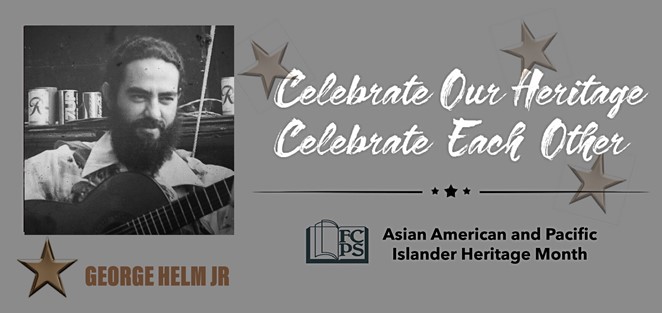
George Helm Jr: George Helm Jr was a Native Hawaiian musician, singer, activist and Native Hawaiian cultural expert. Helm was also a philosopher and considered the pioneer of modern Hawaiian sovereignty ideals, and he prided himself on living in the traditional ways of his ancestors. Helm was on the frontlines of activism, and in 1975, he became heavily involved in the efforts to protect the island of Kaho’olawe from U.S. naval target practice bombings. In 1976, he, along with eight other activists, occupied the island in protest in of its military occupation; Helm became connected to the spiritual power that the island possessed and dedicated his life to protecting it. Helm disappeared in a boat in 1977 off the coast of Kaho’olawe, but his passion for Hawaiʻi’s sovereignty and protection of the land has inspired generations of Kanaka Maoli.
https://en.wikipedia.org/wiki/George_Helm
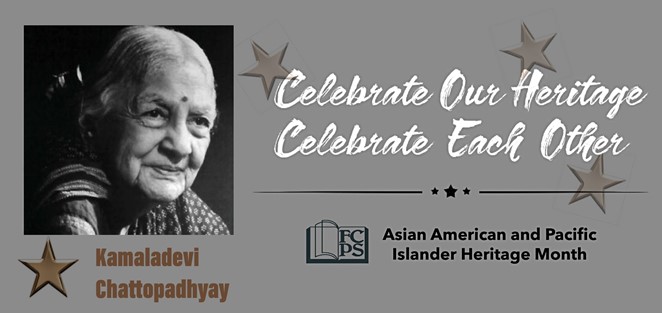
Kamaladevi Chattopadhyay: Kamaladevi Chattopadhyay was one of several Indian-born social reformers who saw parallels between British colonial rule in India and racism against black people in the United States. During her visit to the U.S. in 1941, she identified as a “colored woman,” spoke out against discrimination, and only stayed with black families in an act of racial solidarity. Chattopadhyay was also invested in the arts, and spent her life fighting for feminism and sovereignty for all colonized people worldwide. She published some 20 books by the time of her death in 1988. She was 85.
https://en.m.wikipedia.org/wiki/Kamaladevi_Chattopadhyay
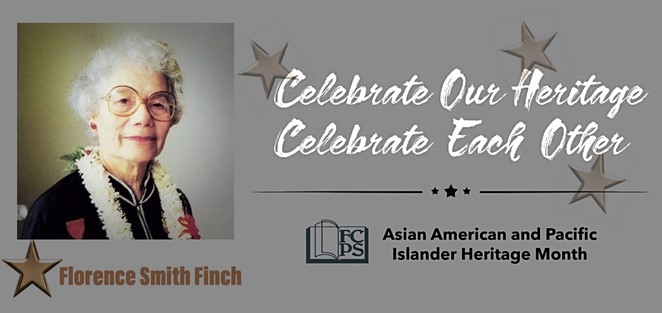
Florence Smith Finch: Florence Finch was born in the Philippines, the daughter of a Filipino mother and an American father, Charles G. Ebersole, who had come to the Philippines with the U.S. Army during the Spanish-American War and had settled there after the war. After graduating high school she went to work for the Assistant Chief of Staff, G-2 (Intelligence), Headquarters, U. S. Army, in Manila under the command of Lieutenant Colonel E. C. Engelhart, AUS. While employed there she met Chief Electrician’s Mate Charles Edward Smith, USN, whom she married on August 19, 1941. After the Japanese attack on Pearl Harbor Chief Smith reported to his P.T. boat for duty but was killed in action on February 8, 1942. Manila fell to the Japanese on January 2, 1942 and being half-Filipino Finch was able to convince the occupation forces that she was able to disguise her American connections.

Mabel Lee: Mabel Lee was a suffragist who mobilized the Chinese community in America to support women’s right to vote leading up to the 19th Amendment to the Constitution that gave many women in the US the right to vote. Because Chinese immigrants were not considered citizens, the ratification of the 19th Amendment in 1920 did not give Mabel the right to vote.

Philip Vera Cruz: Philip Vera Cruz was a Filipino leader in the Asian American Movement, a farmworker and a leader in the labor movement. He also organized alongside César Chávez and fellow Filipino labor leader, Larry Itliong. Born in the Philippines in 1904, Vera Cruz moved to the United States in 1926 where he eventually became a farmworker. Farm work in the U.S. at the time was nearly slave labor, and most jobs were held by Filipino workers. Laborers worked ten-hour days for seventy cents per hour in grueling 110-degree heat. They lived on filthy labor camps with outdoor showers, kitchens that were infested with roaches and mosquitoes and toilets so filled with feces that they were nearly impossible to use. Laborers had very little rights on the job, no access to benefits nor healthcare provided to them. Vera Cruz picked grapes, lettuce and harvested asparagus. He joined his first strike in 1948, organized by Filipino farmworkers who worked in asparagus fields. This strike would inspire Filipino laborers across California, and it was one of the acts that sparked the entire farm labor movement in the United States. Filipino workers began to organize all over the state and Vera Cruz would lead chapters in his local unions. While most people associate the Delano Grape Strikes with Mexican Americans and César Chávez, they were started by Filipino-American workers, of which Vera Cruz was one of the early organizers. Filipino workers decided to merge their unions with those of Mexican Americans, creating the now-famous United Farm Workers (UWF). Vera Cruz would serve as the second vice president of the union, and he also served on the managing board. Vera Cruz stayed radical his entire life, fighting for workers’ rights and inspiring college students to fight for the underrepresented.
https://en.wikipedia.org/wiki/Philip_Vera_Cruz

Eugene Cho: Eugene Cho is a Korean-American pastor, human rights advocate and author. Born in South Korea and raised in San Francisco, California, Cho is a radical voice within the world of evangelicalism. He is the founder and former pastor of Quest Church, a multiethnic congregation in the Seattle, Washington area. The church shifted from an Asian-focused ministry to become a body of multicultural worshipers who call out injustice, live in humility and who live out the true, radical teaching of Jesus. Cho has consistently stood in solidarity with Indigenous peoples, Latinos and Black Americans; he stands in support of Palestine and its people, while also advocating for issues within the Asian community. Cho also speaks out against global poverty and environmental injustices.
https://en.wikipedia.org/wiki/Eugene_Cho

You Chung Hong: You Chung Hong is advocate for Chinese-American Inclusion. As an attorney, he worked to overturn the Chinese Exclusion Act of 1882, including testifying before the United States Senate on its effects. Hong became the first Chinese American to be eligible to appear before the Supreme Court of the United States when he was admitted in 1933. An active member of the local Chinese community, he was named president of the local chapter of the Chinese American Citizens Alliance when he was 28 years old.
The construction of Union Station in the 1930s involved the destruction of the city’s existing Chinatown, and Hong played a pivotal role in developing its replacement, the first in the United States to be owned exclusively by its Chinese residents, both as an investor and in offering legal guidance. He designed a series of buildings on Gin Ling Way, one of which ultimately housed his legal office, and developed the main entrance gate on Broadway and its neon lighting.
His legal practice, the first in Los Angeles owned by a Chinese American, specialized in immigration law, and Hong became one of the top specialists in the field. Area residents approached him to assist with reunification with family members, such as the family of United States District Court Judge Ronald S.W. Lew.
https://www.huntington.org/yc-hong

Andrew Yang: Founder, Humanity Forward & Venture for America and Former 2020 Democratic Presidential Candidate
Andrew Yang is an entrepreneur, author, philanthropist, and former 2020 presidential candidate. Initially dubbed a “longer than long shot” candidate by the New York Times in 2018, Andrew became a top contender for the presidency. With a vision to rewrite the rules of the United States economy through a “Freedom Dividend” of $1,000 a month for every American adult, Andrew became one of the most exciting stories in the 2020 race.
Andrew’s nationwide support, known as the “Yang Gang,” propelled him to seven Democratic primary debates, outlasting six senators, four governors, three members of congress, two mayors, and one secretary. According to CNN, their campaign “didn’t just make history… [it] unquestionably put a sizable dent in the future as well.”
Andrew then founded Humanity Forward, an organization built to legitimize the vision and ideas of his presidential campaign. Through both advocacy and action, Humanity Forward’s vision is to foster a human-centered America that measures each person for their intrinsic value, not their economic value.
Prior to running for office, Andrew founded Venture for America, a non-profit that created thousands of jobs in Detroit, Cleveland, Pittsburgh, Baltimore, and other cities throughout the country. In his book, The War on Normal People, he explains the mounting job-loss crisis due to automation, making the case for Universal Basic Income. Andrew was named a Presidential Ambassador of Entrepreneurship by the White House under the Obama administration and a Champion of Change for his work with Venture for America. Andrew lives in New York City with his wife, Evelyn, and their two sons.
https://en.m.wikipedia.org/wiki/Andrew_Yang

Awkwafina Lum: Awkwafina is a Golden Globe winning actress, writer and musician from Queens, New York. She grew up with her given name, Nora Lum, and has since used her trademark comedic style and signature flair to become a breakout talent in the entertainment industry. Most recently, Lum can be see in her Comedy Central Show, “Awkwafina is Nora From Queens,” which just completed his first season and “Jumanji: The Next Level,” which opened December 2019.
Lum is receiving glowing reviews for her starring role in the indie darling “The Farewell,” where she won the Golden Globe Award for Best Actress – Motion Picture – Musical or Comedy. The story is based on a true story about a family saying goodbye to their beloved matriarch – the only person who doesn’t know she is dying.
Lum brings an impressive range of talent to everything she does, most famously to Warner Bros’ smash hit “Crazy Rich Asians,” which she starred as Peik Lin. She also hosted “Saturday Night Live” and starred in “Ocean’s 8.”
Lum became an internet sensation in 2012 with her satirical work in the viral video “My Vag,” and her 2014 debut album, which featured her acclaimed raps “NYC Bitche$,” “Mayor Bloomberg (Giant Margarita),” and the title track, “Yellow Ranger.”
Lum can next be seen in Marvel’s Shang Chi and The Legend of The Ten Rings and season two of her Comedy Central show. She currently resides in Los Angeles.
https://en.m.wikipedia.org/wiki/Awkwafina

Betty Liu: Betty Liu is the Executive Vice Chairman for NYSE Group, a wholly-owned subsidiary of Intercontinental Exchange, Inc. (NYSE: ICE). She leverages her substantial experience working with thought leaders, entrepreneurs and C-level executives to oversee the NYSE marketing strategy, including its content platform, customer-centric messaging, brand, digital and events consistent with Intercontinental Exchange’s growth strategy.
Prior to joining the NYSE in 2018, Betty was an award-winning business journalist. She most recently anchored the Bloomberg Television “Daybreak Asia” program. She also co-created and anchored “In the Loop” for 8 years on Bloomberg. Prior to the NYSE acquisition, Betty served as founder and CEO of Radiate. Radiate’s content of empowering leaders with expert advice continues to scale through NYSE’s platforms today.
Before joining Bloomberg Television, Betty was an anchor for CNBC Asia based in Hong Kong. Prior to that, she was the Atlanta bureau chief for the Financial Times. Earlier in her career, Liu was the Taiwan bureau chief for Dow Jones Newswires and a Hong Kong-based regional correspondent for the newswire. In 1997, she received a Dow Jones Newswires Award for her coverage of the Asian financial crisis. Liu is also author of the career guide, Work Smarts: What CEOs Say You Need to Know to Get Ahead.
Betty earned a Bachelor of Arts degree in English from the University of Pennsylvania.
https://en.m.wikipedia.org/wiki/Betty_Liu

Prabal Gurung: Prabal Gurung launched his eponymous collection in February 2009 with a philosophy encompassing modern luxury, indelible style and an astute sense of glamour.
Gurung was born in Singapore and raised in Kathmandu, Nepal. After beginning his design career in New Delhi, he moved to New York to finish his studies at Parsons The New School for Design. Upon graduating, Gurung spent two years with Cynthia Rowley’s design and production teams. Soon after, he was appointed design director at the iconic Bill Blass, a post he held for five years until launching his own collection, PRABAL GURUNG.
https://en.m.wikipedia.org/wiki/Prabal_Gurung

Miky Lee: Miky Lee (Mie Kyung Lee) is the Vice Chairwoman of the CJ Group. She is responsible for the overall strategic direction and management of the CJ Group’s entertainment and media division. Alongside her brother, Jay Lee, the Chairman of the CJ Corporation, Ms. Lee founded the entertainment and media division of CJ in 1994 after leading CJ to become one of the founding investors in DreamWorks SKG. Since then, CJ has built many influential companies in Korea’s entertainment and media industry, among them CJ CGV and CJ ENM, each of which holds the distinction of being the leader in its specialized industry. CJ CGV is the first and largest multiplex chain in Korea and CJ ENM is a global entertainment and retail company.
With the success of the entertainment and media industry in Korea, Ms. Lee is committed to building a global common ground to bring about positive change throughout the cultural industry. She continues to travel around the globe in an effort to strengthen CJ’s presence for the global expansion of its business.
In 2017, Ms. Lee was named as new members of the Academy of Motion Picture Arts and Sciences (AMPAS), which awards the annual Oscars. She was also selected as one of the 16 leaders of the Women Entrepreneurs Finance Initiative (We-Fi), which is a part of the World Bank. Ms. Lee is the only Korean member in the group and serves as an inspiration to women entrepreneurs.
Prior to joining CJ, Ms. Lee served as the director of Samsung Electronics America, spearheading cultural and educational projects. She established the Parsons School of Design in Seoul and oversaw the formation of a branch of Pasadena’s Arts Center College of Design for Samsung.
Ms. Lee has been widely recognized for leading the largest entertainment group in Korea and for her global vision. She was selected as one of the Global Leaders for Tomorrow by the World Economic Forum in 1997. During the 2006 Women’s World Awards, she became the first Asian woman to be awarded the World Business Award. She was also selected as one of the leading executives in the film industry by Variety in its Women’s Impact Report 2006. In 2007, she received the CEO of the Year Award from the Korean Management Association in recognition of her work managing one of the largest companies in Korea. In 2012 and 2014, she was on the Forbes Asia list of Asia’s 50 Power Businesswomen. In 2020, Ms. Lee participated as the executive producer of
“Parasite” that won 4 Oscars for Best Picture, Directing, International Feature Film and Writing.
Ms. Lee has always had a deep interest in education and cross-cultural affairs. She earned her B.A. in 1981 at Seoul National University. She studied Chinese language and linguistics at Taiwan National University (1981-1983) and Japanese language at Japan’s Keio University (1984). In 1986, Ms. Lee received her M.A. in Asian studies from Harvard University. At Harvard, she served as a Korean language teaching fellow for three years. She also studied Chinese literature and history at Fudan University in China.
Miky Lee was born in Knoxville, Tennessee and is the first grandchild of B.C. Lee (Lee Byung-chul), the founder of CJ and the Samsung Group.

Satya Nadella: Satya Nadella is Chief Executive Officer of Microsoft. Before being named CEO in February 2014, Nadella held leadership roles in both enterprise and consumer businesses across the company.
Joining Microsoft in 1992, he quickly became known as a leader who could span a breadth of technologies and businesses to transform some of Microsoft’s biggest product offerings.
Most recently, Nadella was executive vice president of Microsoft’s Cloud and Enterprise group. In this role he led the transformation to the cloud infrastructure and services business, which outperformed the market and took share from competition. Previously, Nadella led R&D for the Online Services Division and was vice president of the Microsoft Business Division. Before joining Microsoft, Nadella was a member of the technology staff at Sun Microsystems.
Originally from Hyderabad, India, Nadella lives in Bellevue, Washington. He earned a bachelor’s degree in electrical engineering from Mangalore University, a master’s degree in computer science from the University of Wisconsin – Milwaukee and a master’s degree in business administration from the University of Chicago. Nadella serves on the board of trustees to Fred Hutchinson Cancer Research Center and his alma mater the University of Chicago, as well as the Starbucks board of directors. He is married and has three children.
https://en.m.wikipedia.org/wiki/Satya_Nadella
